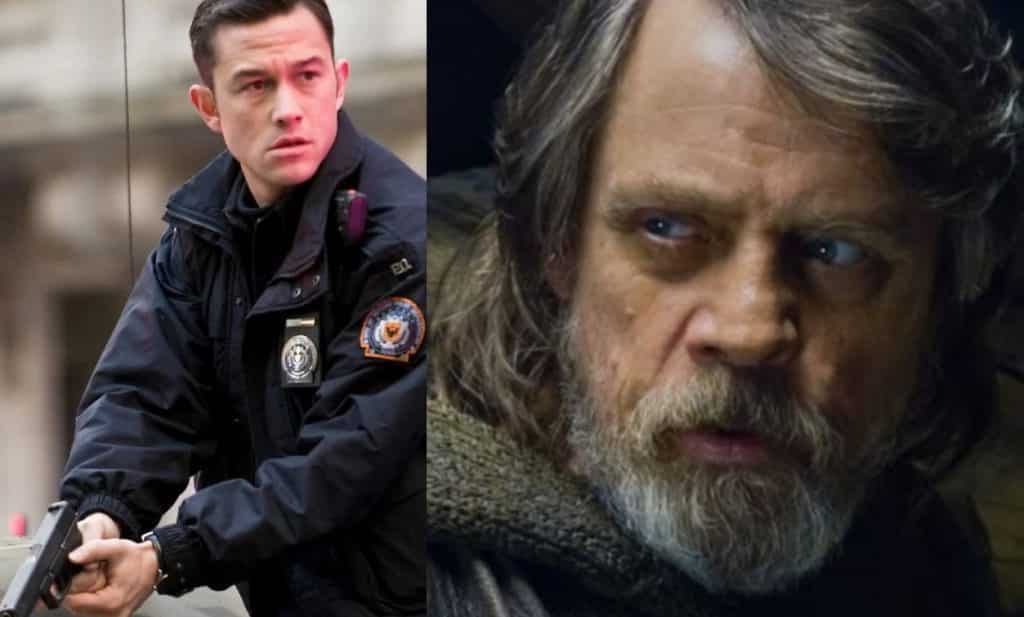Joseph Gordon-Levitt is a huge Star Wars fan. Not huge. Enormous. He wore a Yoda costume, face paint and all, to the Star Wars: The Force Awakens premiere. It isn’t surprising to hear him speak about the ongoing division over Star Wars: The Last Jedi. In fact, he wrote a pretty long essay in defense of the film, even celebrating it and how Luke Skywalker’s story turned out.
Before we get into what he wrote. It’s worth mentioning how close he and Rian Johnson are. He even admits he might be a little biased about his opinion of The Last Jedi because of their friendship. He even had a cameo in the film. However, he does make a few really good points about Luke’s fate in the piece he wrote for Medium, and even touches on how people interpret the media. He explains:
“Leaving Luke unchanged would have been a huge missed opportunity. Think about how rare this is. A trilogy of movies is made with a young protagonist played by an actor in his 20s. Then, no fewer than 40 YEARS LATER (A New Hope came out in 1977) this actor gets to play the same character as an older man. I don’t know how many times that has ever happened in the history of movies. Has it ever happened?”
It’s pretty exciting to see Luke 40 years later. It was one of the draws of this film while we were all waiting for it. However, it wasn’t just the character changing over the years. It was also how Disney was unafraid to take a risk as big as Rian was willing to take. Gordon-Levitt continued on to say,
“No one is a perfect hero or a perfect villain. We’re more complicated than that, every one of us.”
It helped Mark Hamill accept the idea of his character changing in such a heartbreaking way.
“That a big Hollywood studio would take such risks on such a big property — again, to present their central hero in a drastically different light than ever before, to unflinchingly deliver the ominous message that even the most pure-hearted idealists can struggle through darkness and doubt — these are not the kinds of decisions that get made when short-term profitability is prioritized above all else. These are risks taken in the interest of building a world that is not only good for selling popcorn and action figures this year, but that thrives in the long-run on a bed of literary substance and artistic dignity. As a fan, I take it as a sign of respect that the movie was not only a good time, but a provocative challenge. A lot of studios and filmmakers don’t think so highly of their audiences.”
He finishes by saying,
“In the end, to me, The Last Jedi demonstrates not only that we can still have faith in Star Wars, but that Star Wars still has faith in us.”
It’s a really heartfelt conclusion, and one that I can get behind. However, the best part of this piece is how he speaks about audiences and fans, and how we devour film.
“I don’t think it’s possible to be wrong when it comes to movies, or art, or literature, or whatever you wanna call it. In our ever more gamified culture, with endless awards shows, publicized box office figures, and the all-knowing Tomatometer, it seems conversations about movies are more and more often put into quantified terms of good and bad, best and worst, right and wrong. And then there’s the twitface-insta-fueled tribalism, people taking sides, pointing fingers and spitting venom at the other guys. There seems to be a lot of that going around right now from both lovers and haters of this movie. Dear oh dear, folks. This isn’t politics or sports. The fruit is in the subjectivity.”
There is no doubt that these words can be agreed upon by all sides. Opinions are just that. Opinions. Cinema creates these heated debates that no one will ever win because they are subjective, as Gordon-Levitt points out. It is doubtful, though that his carefully chosen words will squelch the arguing back and forth from both camps that adds a sour note to a film that deserves a better audience.
What did you think of Star Wars: The Last Jedi? Do you agree with Joseph Gordon-Levitt? Be sure to tell us your thoughts in the comments!

